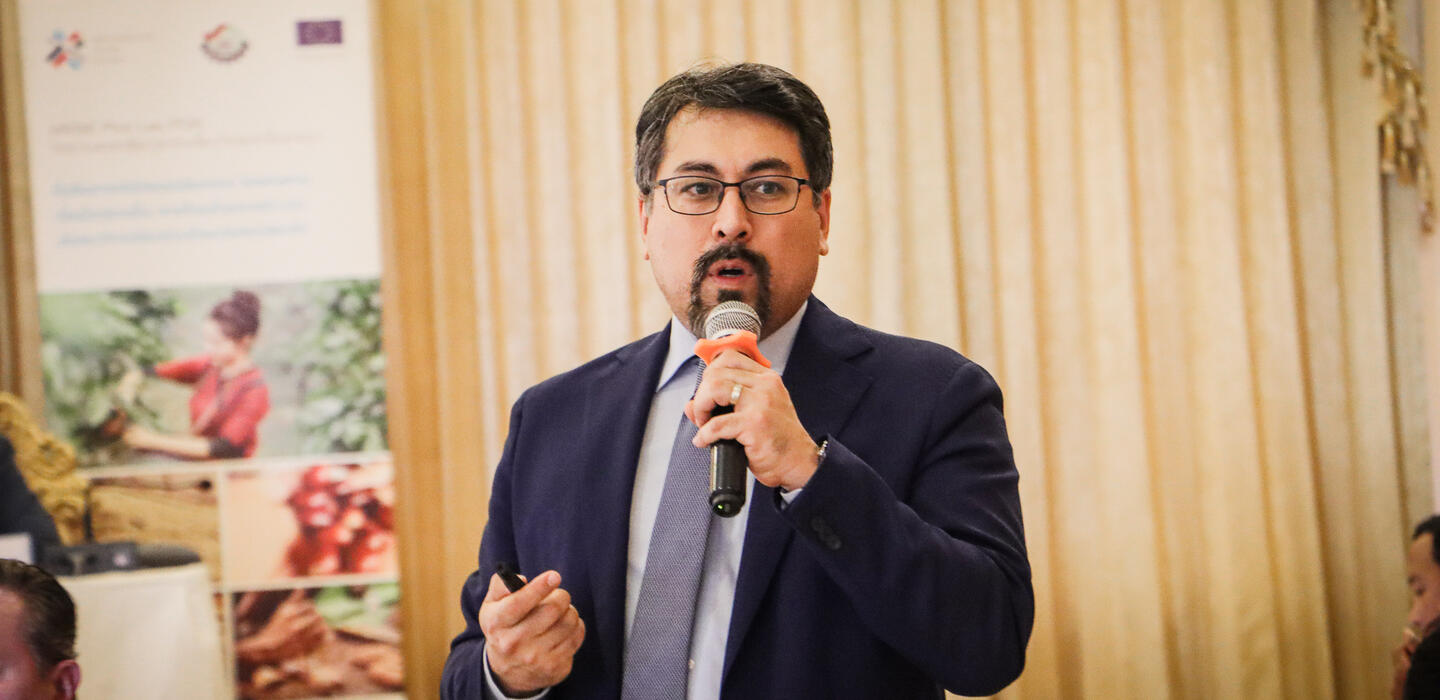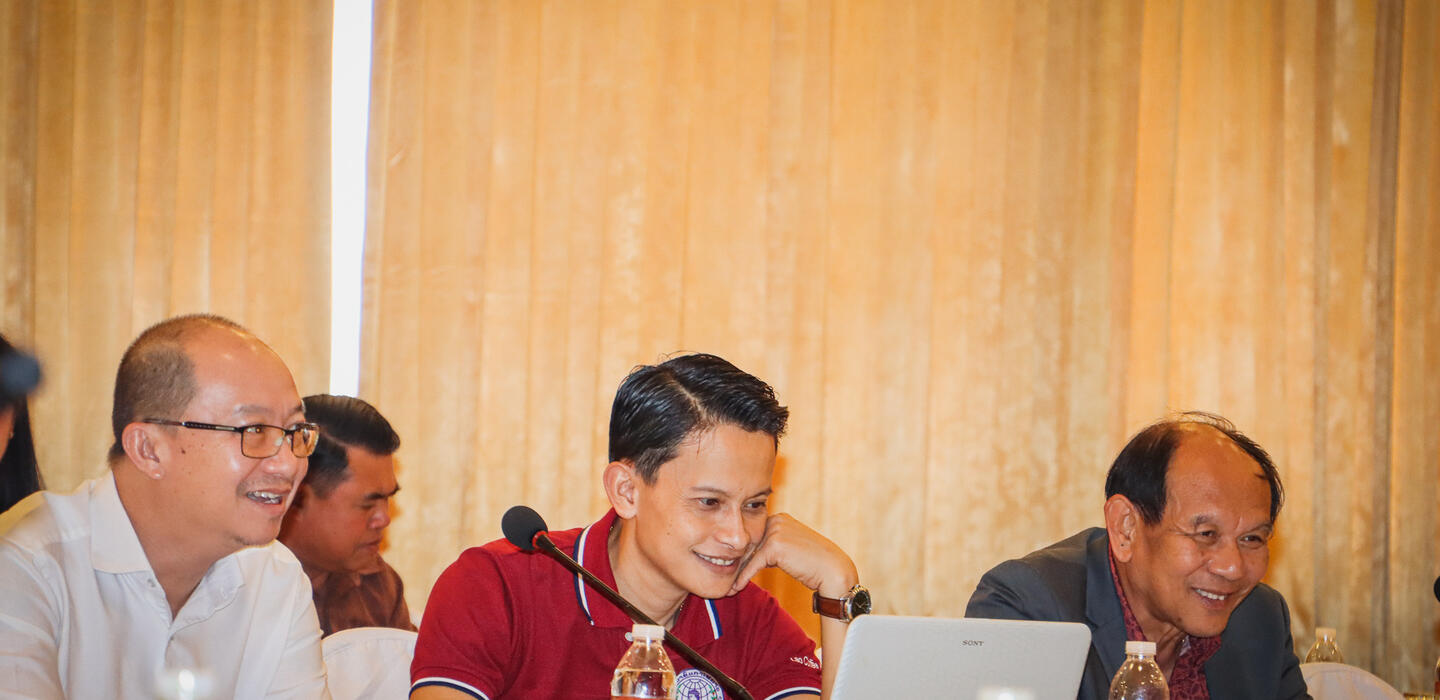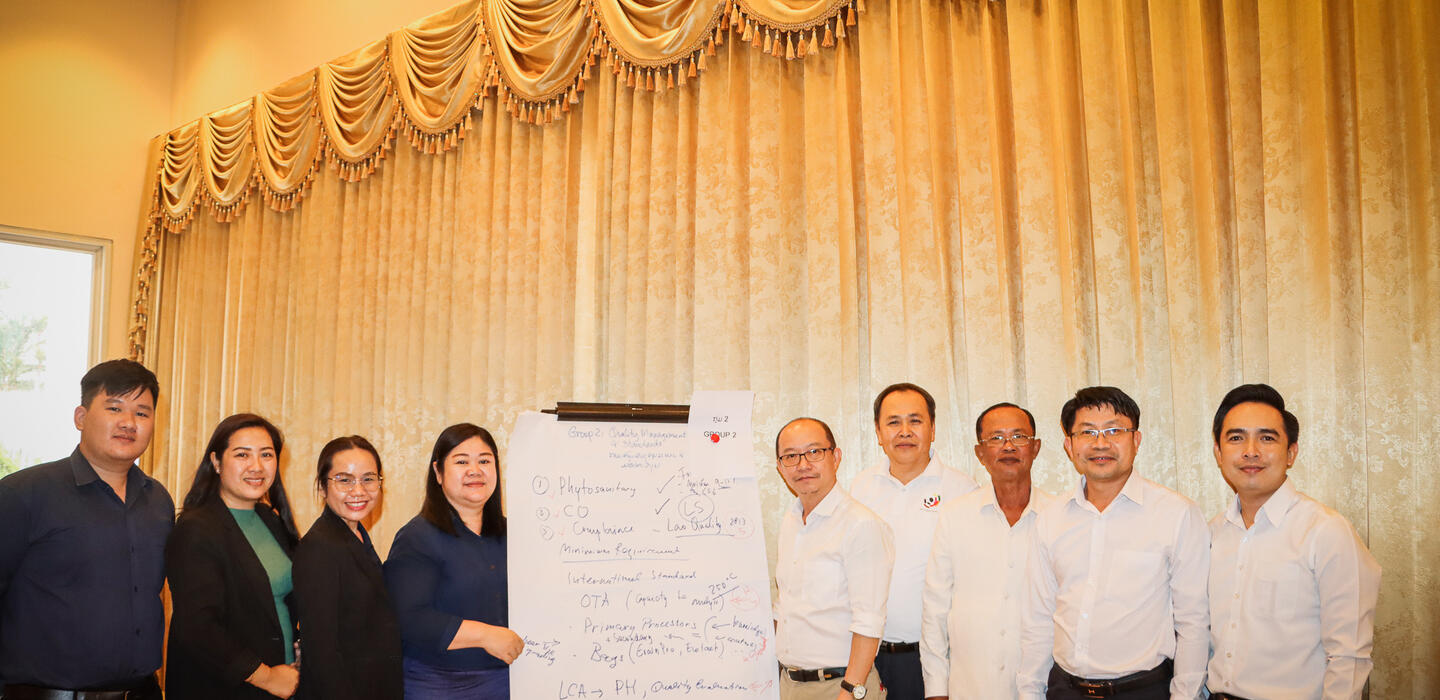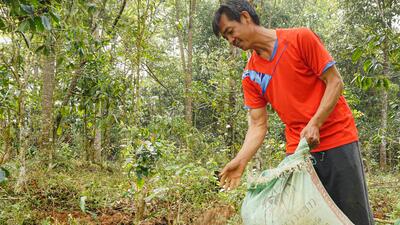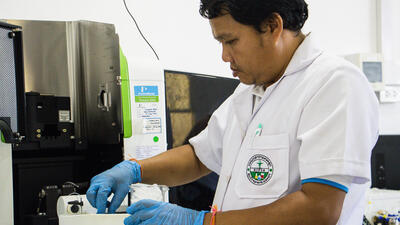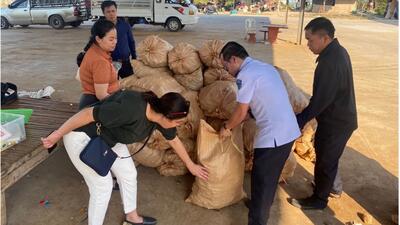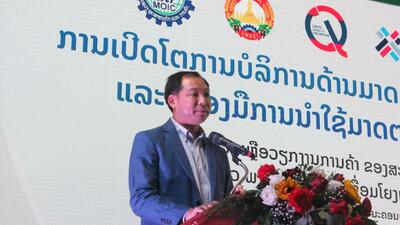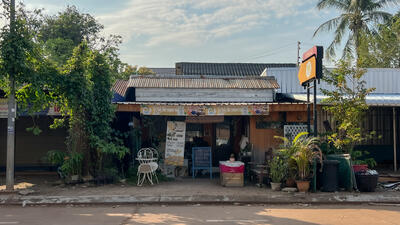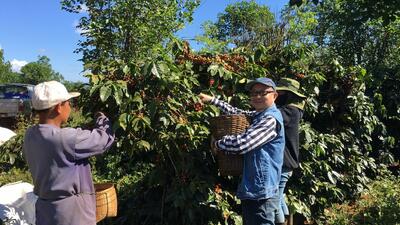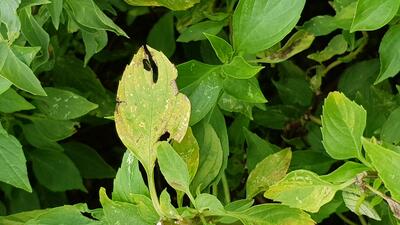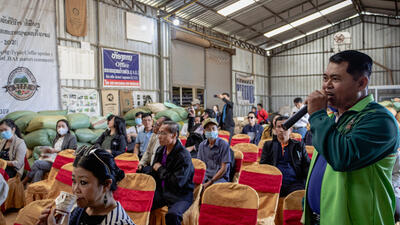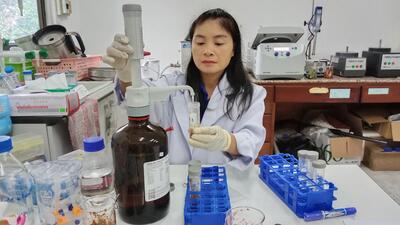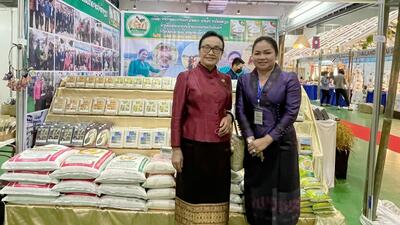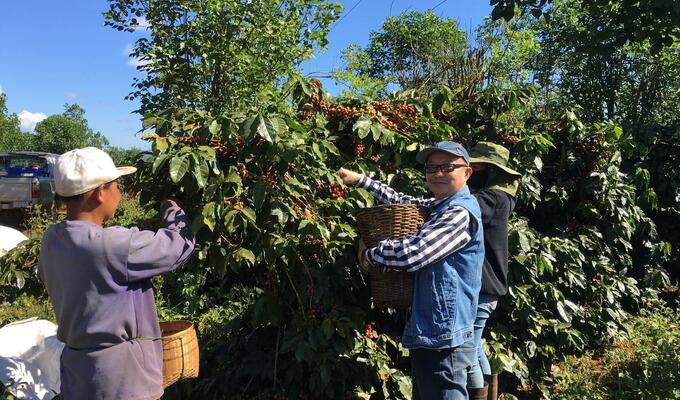
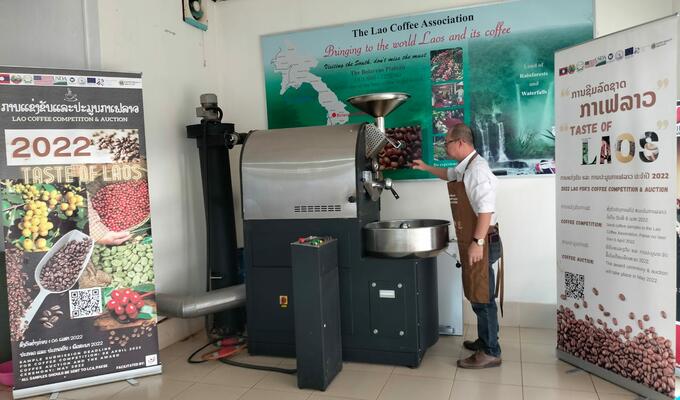
Lao coffee producers on road to grow exports
In 2021, a roadmap laid out how to grow Lao coffee exports. Farmers followed up a year later to look at how to increase their production.
Sengchan Khammoontha grew up around the Lao capital Ventiane, but in his 30s his passion for coffee led him to move to Pakse. Since the early 2000s, he’s run a small family-owned coffee business in this lush region. Thanks to his enthusiasm and love for coffee, Khammoontha was named vice president of the Lao Coffee Association in 2005.
About two billion cups of coffee are consumed every day worldwide. Khammoontha himself drinks up to four cups a day. He likes the coffee beans that grow on the Bolaven Plateau in Pakse. Both Arabica and Robusta beans grow well there. He doesn’t prefer one bean over the other, but he does favour light roasts.
“I always go for light roast beans because compared to dark roast coffee, light roast coffee seems to have a smoother taste and a milder acidity,” said Khammoontha.
According to a study by the International Trade Centre, the Lao coffee industry has the potential to provide more sustainable livelihoods in rural areas, where there’s a long tradition of producing quality coffees.
Improving Lao coffee
One year ago, the Lao PDR Coffee Sector Export Roadmap set out a plan for growing the industry. In December, the Ministry of Industry of Commerce, the Ministry of Agriculture and Forestry, the Lao Coffee Association, and others in the industry gathered in Pakse to report progress, discuss challenges, and look at the way forward.
More than 50 people attended the workshop. In a group discussion, Khammoontha and his team came up with solutions to challenges, proposed priorities, and laid out plans to implement the roadmap by 2025.
Among the priorities in 2023, the Lao coffee sector will work with ITC, the Lao Coffee Association, and other national stakeholders to continue improving the standards and quality of Lao coffee, while expanding links to international markets. Another goal is to train more local Q-Graders, the specialists who evaluate coffee beans. And in March 2023, the 3rd Lao Green Coffee Competition will help promote the country’s high-quality coffee beans.
“This roadmap is very beneficial for the Lao coffee sector. It strives for increased productivity and sustainability in coffee production and processing, at the same time enhancing the capacity of Lao exporters,” Khammoontha said.
By offering a clear plan, the roadmap provides guidance for improving quality to meet with international standards, fostering dynamism, and connecting to global markets. Moreover, small producers and businesses are set to benefit from capacity building, organization, and trade information.
“What we have seen at the workshop was a strong level of engagement from all public and private stakeholders, at every step of the Lao coffee value chain, from farm to cup. It is inspiring to witness the progress already recorded in the collective implementation of the Lao coffee export roadmap,” said Ky Phong Nguyen, the programme officer at ITC.
About the project
The ASEAN Regional Integration Support – Lao PDR Trade Related Assistance project (ARISE Plus Lao PDR) is funded by the European Union (EU). It aims to contribute to inclusive economic growth, increased climate change resilience, mitigation of vulnerability and job creation in Lao PDR.
Under the ARISE Plus project, ITC works with the Lao Government to design and develop the Lao PDR Coffee Sector Export Roadmap (2021-2025). The project continues to provide support in implementation of the action plans and monitoring the progress of the roadmap. In 2022, ITC worked with LCA and Winrock International to organise the 2nd Coffee Competition and Lao PDR’s first online coffee auction.




